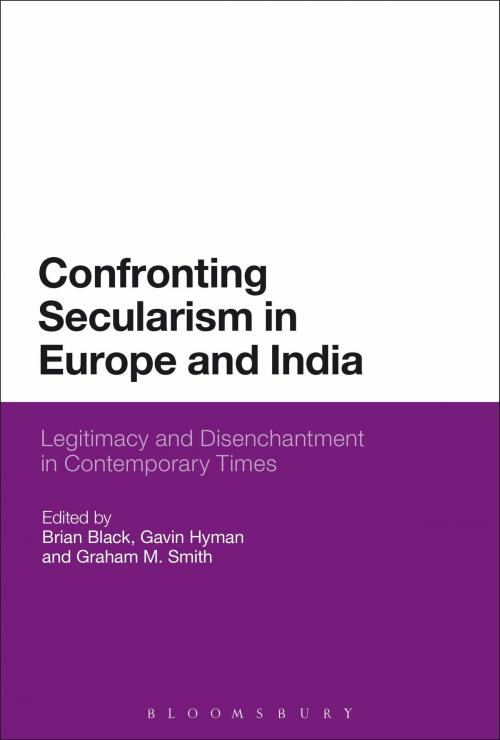Confronting Secularism in Europe and India
Legitimacy and Disenchantment in Contemporary Times
Nonfiction, Social & Cultural Studies, Social Science, Sociology, Marriage & Family, Religion & Spirituality, Christianity, Church, Church & State| Author: | ISBN: | 9781780937311 | |
| Publisher: | Bloomsbury Publishing | Publication: | June 19, 2014 |
| Imprint: | Bloomsbury Academic | Language: | English |
| Author: | |
| ISBN: | 9781780937311 |
| Publisher: | Bloomsbury Publishing |
| Publication: | June 19, 2014 |
| Imprint: | Bloomsbury Academic |
| Language: | English |
Can secularism continue to provide a foundation for political legitimacy? It is often claimed that one of the cultural achievements of the West has been its establishment of secular democracy, wherein religious belief is respected but confined to the sphere of private belief. In more recent times, however, political secularism has been increasingly called into question. Religious believers, in numerous traditions, have protested against the distortion and confinement that secularism imposes on their faith. Others have become uneasily aware of the way in which secularism no longer commands universal assent in the way it once did.
Confronting Secularism in Europe and India adds to this debate by staging a creative encounter between European and Indian conceptions of secularism with a view to continuing new and distinctive trajectories of thought about the place and role of secularism in contemporary times. Looking at political secularism, the relationship between secularism and religion, and religious and secular violence, this book considers whether there are viable alternatives to secularism in Europe and in India.
Can secularism continue to provide a foundation for political legitimacy? It is often claimed that one of the cultural achievements of the West has been its establishment of secular democracy, wherein religious belief is respected but confined to the sphere of private belief. In more recent times, however, political secularism has been increasingly called into question. Religious believers, in numerous traditions, have protested against the distortion and confinement that secularism imposes on their faith. Others have become uneasily aware of the way in which secularism no longer commands universal assent in the way it once did.
Confronting Secularism in Europe and India adds to this debate by staging a creative encounter between European and Indian conceptions of secularism with a view to continuing new and distinctive trajectories of thought about the place and role of secularism in contemporary times. Looking at political secularism, the relationship between secularism and religion, and religious and secular violence, this book considers whether there are viable alternatives to secularism in Europe and in India.















